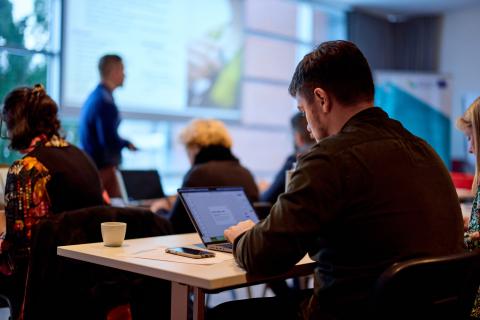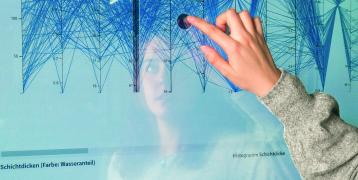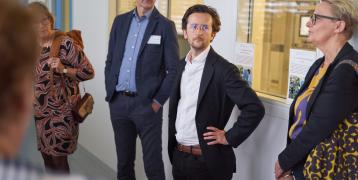Digital solutions for public administration

The Interreg Europe Policy Learning Platform received a policy helpdesk request for more information on Digital solutions used by public administrations in service of the people, such as e-governance.
Our Thematic Expert for a Smarter Europe, Arnault Morisson, compiled a list of Interreg Europe projects’ good practices and Policy Learning Platform resources.
E-governance for citizens
- In the BETTER project, Urban Dialog is a community-based online urban development platform to promote public engagement and participation between the municipality and the citizens in the development of urban projects in Budapest, Hungary. For the Municipality, it allows to present and revise initiatives at an early planning stage and to develop greater social support. For the citizens, it contributes to pursue bottom-up community-based projects.
Overall, the initiative contributes to public perceptions of legitimacy, authority, and good governance.
- In the CARPE DIGEM project, the 4PDIH – Public, Private, People, Partnership Digital Innovation Hub is a Digital Innovation Hub within the University of Ljubljana. It provides support services to the digital transformation of communities, SMEs and public administrations (e.g. training courses, experts’ mentorship, guidance in fundraising and investments).
It also acts as a promoter of networking activities between industry, educational and research institutions, public administrations, NGOs and local communities with the aim of creating an innovation ecosystem to encourage digital transition in Slovenia. The good practice provides other regions with a model to design a comprehensive DIH that addresses multiple digitalisation challenges among different stakeholders.
- In the BETTER project, the initiative e-service development and implementation in Gävle shows the importance for improving digital services continously. It showcases the digitalisation unit within the IT and Development Department that is responsible for Digital Renewal Programme and the development of the Gävle e-services.
The initiative highlights the importance to continuously improve existing e-services and to create new e-services to respond to customer’s emerging needs through interactions with end-users. The good practice can inspire regions and municipalities to structure their digitalisation units to continuously screen their e-services offering.
- Another example of the BETTER project is the good practice service design/design thinking in public services, which offers a path forward with a methodology to create better e-services. It illustrates the case of Gävle using the Innovation Guide developed by SALAR, the Swedish Association of Local Authorities and Regions to co-create e-service solutions with end-users.
The methodology contains six steps: Define, Explore, Focus, Ideate, Prototype and Realise. The methodology offers structure for capacity-building for digital units in the public sector in regions across the European Union to create better e-services. As shown in the good practice, the methodology was widely adopted by BETTER project partner confirming its replicability in a diverse range of regional contexts and digital maturity levels.
Regional initiatives to promote digital participation among citizens
- In the NEXT2MET project, DigiMobil showcases an innovative mobile infrastructure to promote digital skills and to improve digital literacy in a rural Mecklenburg-Vorpommern in Germany. In rural areas, many citizens do not have the digital literacy to use digital tools, leading to a digital divide between citizens in urban versus rural areas.
With the creation of broadband infrastructures that offer new opportunities for citizens in rural areas, the fully equipped vehicle “DigiMobil” provides training and knowledge to fully take advantage of digital technologies. Initiatives such as the DigiMobil are highly relevant in rural areas where digital literacy is low in order to reduce digital disparities and divides.
- In the ERUDITE project, the example from Västernorrland, Sweden, e-citizen week - an effort to increase the use of e-services aims to build knowledge on e-services for targeted groups and to create dialogue between e-service developers and end-users.
Interreg Europe Policy Learning Platform resources
Explore several recources from the Policy Learning Platform:
Image

Submit your policy helpdesk request
Are you interested in getting support from our team of experts? Submit your policy helpdesk request today!

